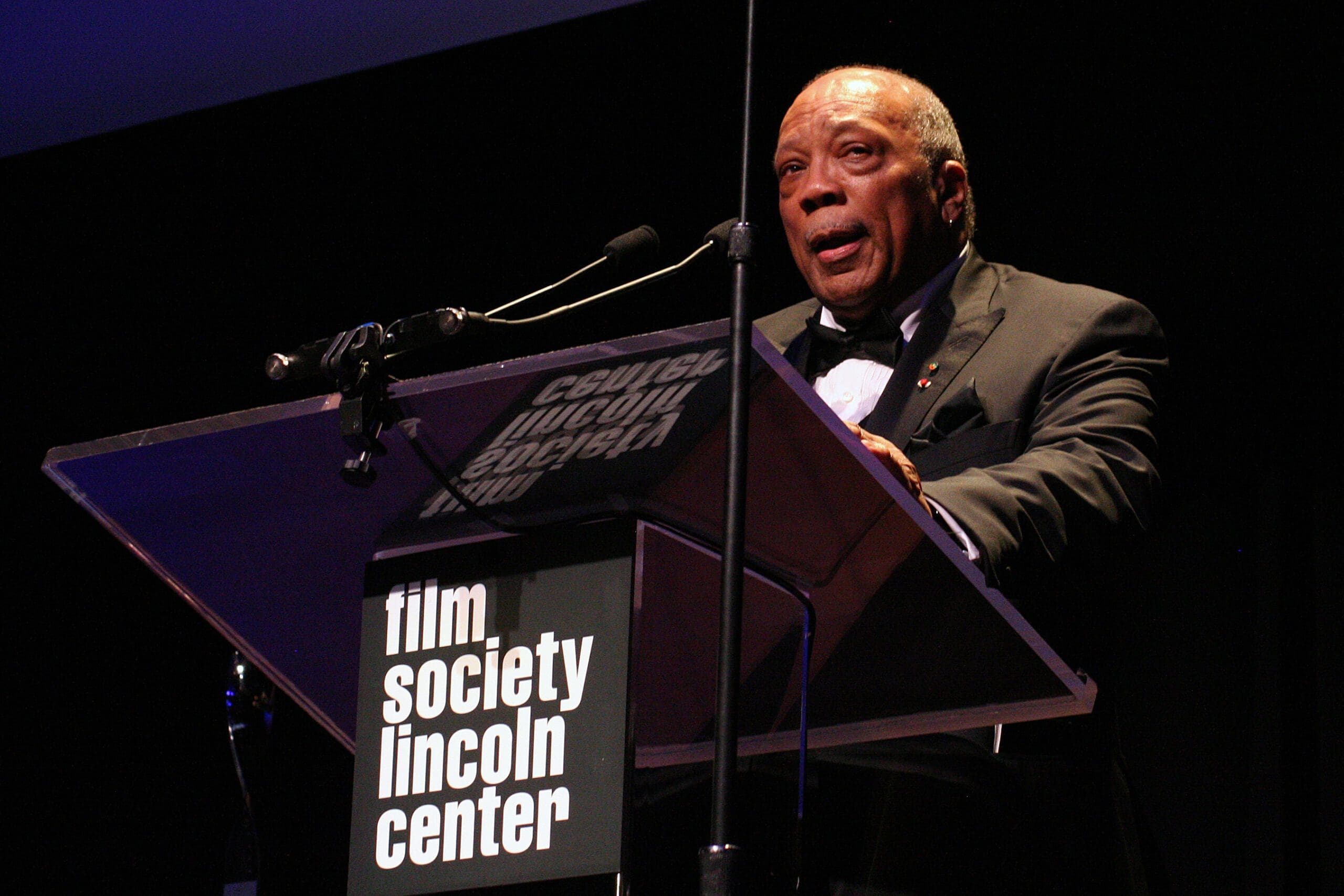The world is mourning the loss of a true music legend: Quincy Jones, the iconic producer, composer, and arranger, passed away, on Sunday, at the age of 91. Known for transforming the music scene across seven decades, Jones left an indelible mark on almost every genre you can think of. The man behind Michael Jackson’s Thriller—yes, that Thriller, the one with sales north of 65 million copies—has left us, but his legacy? Well, that’s here to stay.
His family shared the news of his passing, stating, “Tonight, with full but broken hearts, we must share the news of our father and brother Quincy Jones’ passing. And although this is an incredible loss for our family, we celebrate the great life that he lived and know there will never be another like him.”
According to his publicist, Arnold Robinson, Jones died peacefully at his home in Bel Air, Los Angeles, on Sunday night, surrounded by his loved ones. A career spanning more than 70 years made sure Jones wasn’t just a name in the background but a force that kept the music world on its toes.
Let’s rewind for a bit. Jones worked with a jaw-dropping array of artists, including Frank Sinatra, Miles Davis, Aretha Franklin, and Ray Charles, to name a few. His work with Michael Jackson remains his crowning achievement, producing Thriller, Off the Wall, and Bad, the albums that launched Jackson from a global pop icon to the King of Pop himself. If you were grooving to Beat It or practising the moonwalk to Billie Jean, Jones was the mastermind shaping those moments.
But it wasn’t just about pop hits. Jones’ career was like a masterclass in versatility. He scored films like The Color Purple, Roots, and The Wiz and even composed the theme music for The Fresh Prince of Bel-Air, which he also produced, giving a young Will Smith his big break. If that doesn’t scream influence, what does?
Quincy Jones is the definition of a Mentor, a Father and a Friend. He pointed me toward the greatest parts of myself. He defended me. He nurtured me. He encouraged me. He inspired me. He checked me when he needed to. He let me use his wings until mine were strong enough to fly. pic.twitter.com/6Wlx12Mbch
— Will Smith (@WillSmith2real) November 4, 2024
Quincy Jones wasn’t one to brag—although he easily could have, with 80 Grammy nominations and 28 wins (yes, you read that right). His career was filled with pioneering moments: he became the first Black vice president of a major record label, Mercury Records, in the early 1960s, and later broke barriers in Hollywood. He even organised the unforgettable “We Are the World” charity single for Africa in 1985. Lionel Richie, who co-wrote the song, fittingly called Jones “the master orchestrator.”
"This moment, this evening, this spot where I stand tonight was not my destination when I was young and full of vinegar. I did not engineer this journey. To tell you the truth, I don't think I could even see this far." — Quincy Jones accepting the Jean Hersholt Humanitarian Award… pic.twitter.com/NaKyFyTPoW
— The Academy (@TheAcademy) November 4, 2024
With seven children, including actress Rashida Jones, and a life story that spans jazz clubs, Hollywood red carpets, and the White House, Jones was more than a music man; he was a cultural force. His commitment to philanthropy, particularly around education and fighting HIV/AIDS, only added to his legacy.
RIP Quincy Jones… 😔 pic.twitter.com/m4HIbVsZcI
— Dihya (@Cecilia271212) November 4, 2024
South Africa, like the rest of the world, will no doubt feel the loss of this titan. But as we reflect on the groundbreaking music he created and the lives he touched, we’re reminded that legends like Quincy never really leave us. Rest in peace, Quincy. You gave us the soundtrack to our lives.
- Staff Reporter
- Staff Reporter
- Staff Reporter




